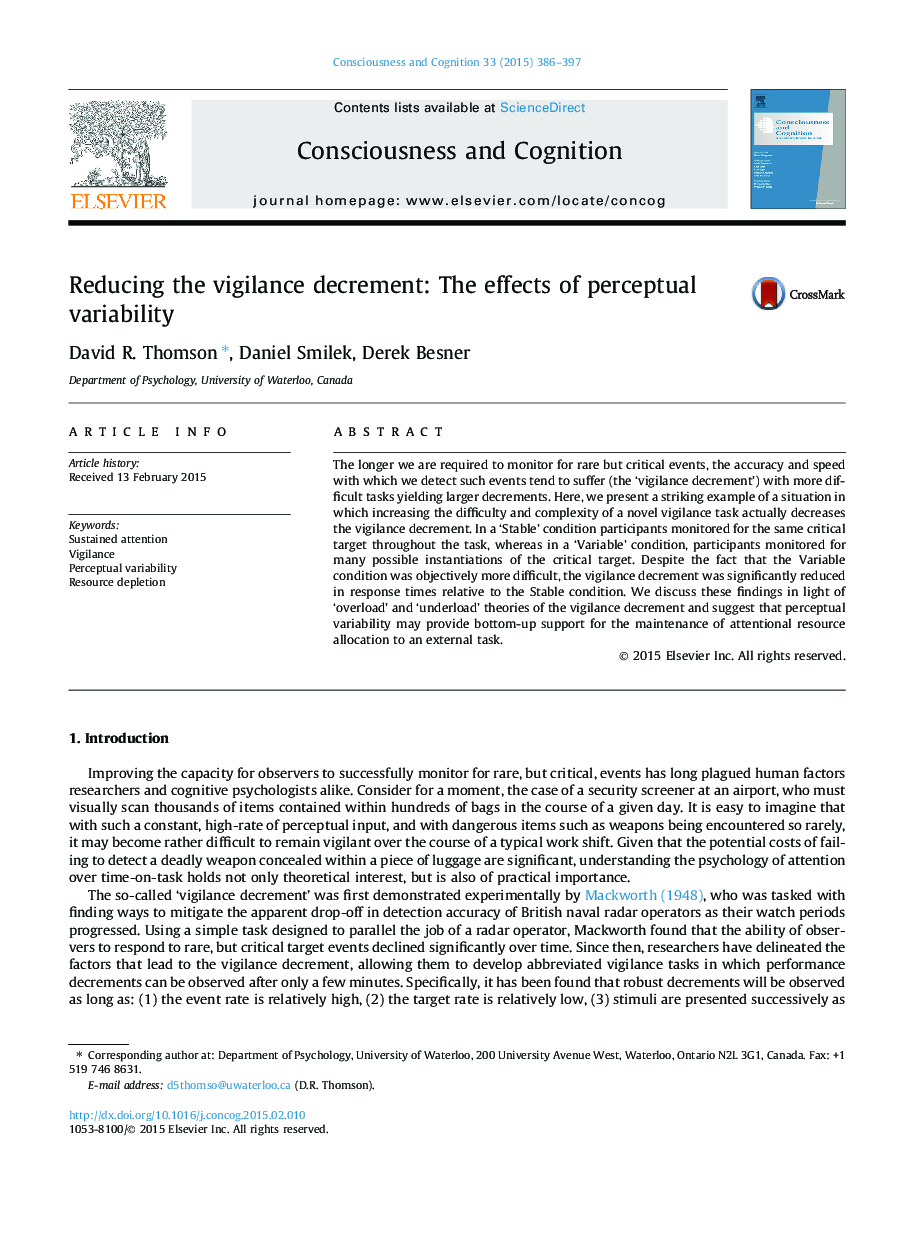| Article ID | Journal | Published Year | Pages | File Type |
|---|---|---|---|---|
| 7289593 | Consciousness and Cognition | 2015 | 12 Pages |
Abstract
The longer we are required to monitor for rare but critical events, the accuracy and speed with which we detect such events tend to suffer (the 'vigilance decrement') with more difficult tasks yielding larger decrements. Here, we present a striking example of a situation in which increasing the difficulty and complexity of a novel vigilance task actually decreases the vigilance decrement. In a 'Stable' condition participants monitored for the same critical target throughout the task, whereas in a 'Variable' condition, participants monitored for many possible instantiations of the critical target. Despite the fact that the Variable condition was objectively more difficult, the vigilance decrement was significantly reduced in response times relative to the Stable condition. We discuss these findings in light of 'overload' and 'underload' theories of the vigilance decrement and suggest that perceptual variability may provide bottom-up support for the maintenance of attentional resource allocation to an external task.
Related Topics
Life Sciences
Neuroscience
Cognitive Neuroscience
Authors
David R. Thomson, Daniel Smilek, Derek Besner,
